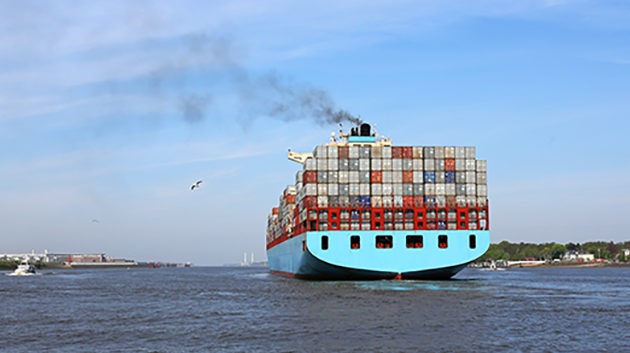According to an industry survey, around 80% of shippers feel they have to pay premiums of $400 to $500 per container on the deepsea trades. Many feel if they don’t pay the premium, their cargo is going to be rolled. This is happening with cargo going Europe-to-Far East, Far East-to-Europe and transpacific-eastbound.
An industry analyst described rollovers as the carriers’ way of imposing a rate increase “by another name,” and warned that shippers that won’t pay face lengthy delays. “Their cargo could be sitting four or five weeks, because if you get rolled one week, there’s no guarantee you make it onboard the following week.
Meanwhile, the analyst notes that demand does appear to be increasing as major economies re-open after lockdown and peak season gets under way. “We are seeing demand improving because major consumer countries are starting to open up again, starting with Europe. Stores are opening, people are shopping brick and mortar a little bit more and typical consumers feel a little better about their income. So there’s pent-up consumer demand and purchase orders are going back in.”
Carrier pricing comes into question – are they making too much?
Increased rates and rollovers have been made possible by carriers’ capacity discipline, a result of the widespread industry consolidation in recent years. Load factors recently have reached as high as 95% on headhaul services, up from 80% in “normal” times.
Spot rates in the trans-Pacific ocean trade also continue to reach epic new heights, leading to talk if the carriers are making too much money in a time of crisis. When a maritime consultant was asked, “Will trans-Pacific rates prompt action by the Federal Maritime Commission (FMC), the agency that oversees alliances?” His answer, “not likely.”
First, the FMC has given carriers specific permission to blank sailings in line with demand. Second, blank sailings are now rapidly dwindling at the same time spot rates are rising. And third, carrier agreements with the FMC do not forbid reasonable price increases and service decreases.
There wouldn’t be any debate on anti-competitive pricing if the container sector were not so acutely consolidated. Alphaliner estimates that the alliances now control 89% of the market share between Asia and North America (including both coasts). The 2M Alliance (Maersk, MSC) controls 20%. The Ocean Alliance (COSCO/OOCL, CMA CGM/APL, Evergreen, HMM) has 39%. And THE Alliance (Hapag-Lloyd, ONE, Yang Ming) has 30%.
Carriers did indeed reduce capacity in the second quarter. However, they did so in line with “the expected fall in demand,” which was inherently uncertain given the unprecedented nature of the coronavirus outbreak. As it turned out, demand exceeded expectations, so carriers added some sailings back in.
Rates are now rising despite carriers canceling many fewer sailings. Thus, rates are rising because demand is up, not because of a “reduction in competition” (i.e., reduced capacity).
“This demand surge is likely driven by many U.S. businesses adding inventory that’s finally run down since their last orders in May or April,” the consultant said. “As restrictions in some areas are reduced, businesses are reopening and even U.S. manufacturing is recovering somewhat.” He added, “Some of this demand in what may be an early peak season could be motivated by the August expiration of certain tariff exemptions for hundreds of products.”
SeaIntelligence Consulting CEO Lars Jensen highlighted the reasonableness factor. “In very round numbers, ocean freight accounts for 1.3 cents of each dollar of goods. The rate increase in 2020 means that each dollar of goods has seen a freight rate increase of $0.0009.”
Jensen continued, “My own recent estimate was that if carriers can maintain the [first-half rate] increase they could see profits of $9 billion in 2020. If they fail, the year could still end at a loss of $7 billion.
Source: Loadstar, Freightwaves



